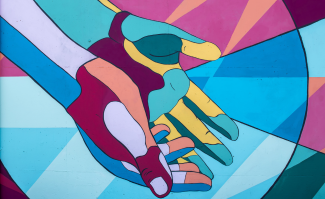The Reparations Subcommittee of the diocesan Racial Justice Commission has released a substantive new history report, “And You Will Know the Truth, and the Truth Will Make You Free: A Historical Framework (1620-1840) for Understanding How the Episcopal Diocese of Massachusetts Benefits Today from Chattel Slavery and Its Legacy.”
The report—authored by Alden Fossett, a postulant for ordination to the priesthood and Master of Divinity student at Berkeley Divinity School at Yale—says in its introduction that it “offers preliminary background historical research and documents trends over time without being exhaustive,” aiming to “inform ongoing work in congregations and other diocesan institutions exploring their connections to slavery.”
It includes information about 12 Church of England parishes founded in Massachusetts before the American Revolution and the sources of wealth that funded their construction, as well as industries that funded the expansion of the Diocese of Massachusetts during the 19th century.
"The consensus of both archival research and secondary scholarship is clear: chattel slavery was essential to the economic development of Massachusetts from the 1620s through the 1860s. That economic development created much of the wealth that funded the diocese and its congregations. Thus, the resources that the diocese received in the 17th, 18th and 19th centuries from donors can be traced back to the trade of enslaved African people and the commodities produced by enslaved African people," the report's introduction explains. "The enslavement of African people throughout English colonies in North America and on plantations in the West Indies (in addition to the global trade of slave-produced goods) constituted the engine that drove the world economy in the 17th, 18th and 19th centuries, even though not every individual Massachusetts resident was an enslaver."
"This report is one vital step in the multifaceted work of history gathering and honesty in our diocesan engagement with the work of antiracism," Bishop Alan Gates said.
"Fundamental to this effort: We cannot right a wrong we do not admit exists. As Albert Einstein said in an address to the National Urban League, 'We must make every effort [to ensure] that past injustice, violence and economic discrimination will be made known to people. The taboo, the ‘let’s-not-talk-about-it’ must be broken.' The point is not to be held hostage to a past history not of our personal making; we are talking precisely about ways to free ourselves from history which even now imposes burdens and degradation upon people of African and Indigenous descent, and diminishes us all. I am grateful to the Racial Justice Commission of our diocese, to its Reparations Subcommittee and to the author of this report for advancing our capacity to reflect on the past in order to redeem the future," Gates said.
The report builds on work already being done in several parishes and is the latest addition to the Reparations Toolkit of resource materials that the Racial Justice Commission's Reparations Subcommittee has been developing and making available since 2021. The 2020 Diocesan Convention called for creation of the toolkit to support congregations as they explore “their historic involvement in and present wealth derived from the forced labor of enslaved people.” The toolkit, including the new report, is available at www.diomass.org/reparations-toolkit.
“As you read this report, our prayer for you is that you will be inspired to courageously explore your own congregation’s history more fully, to not be afraid or embarrassed of what you might find about its connections to slavery and to be willing to share what you find for the sake of our collective journey deeper into freedom. We are with you in this important work of discipleship!” the Reparations Subcommittee says in its preface to the report.

